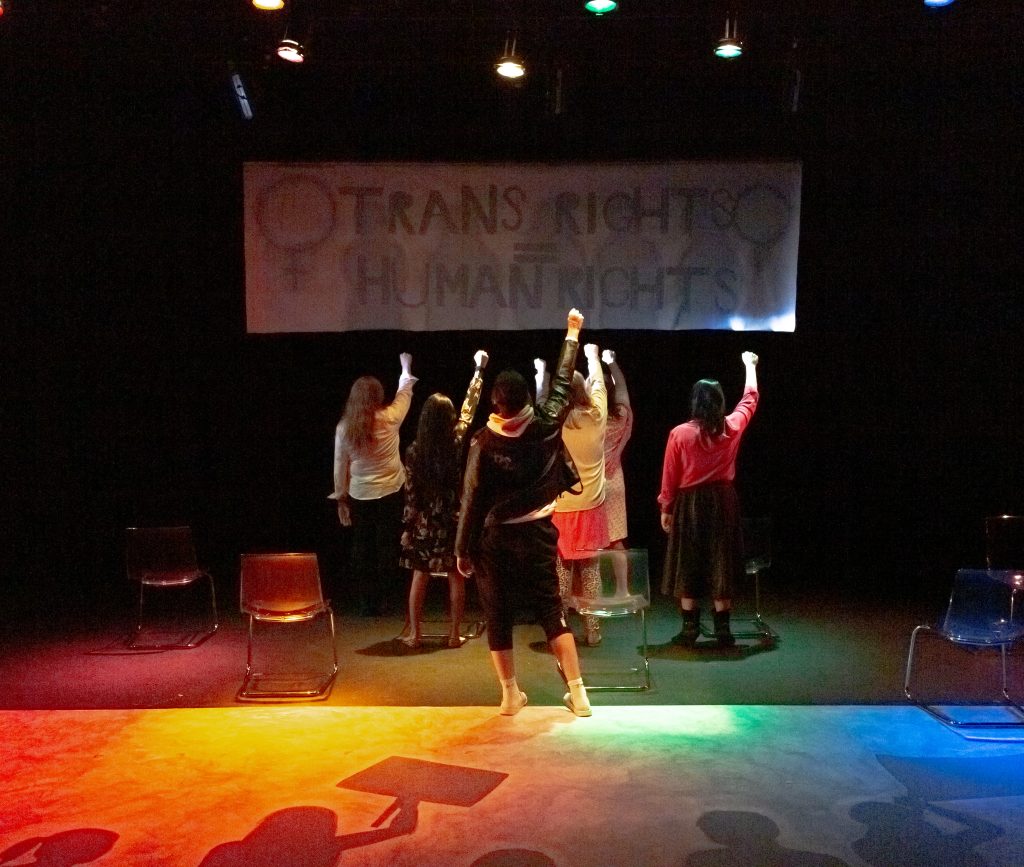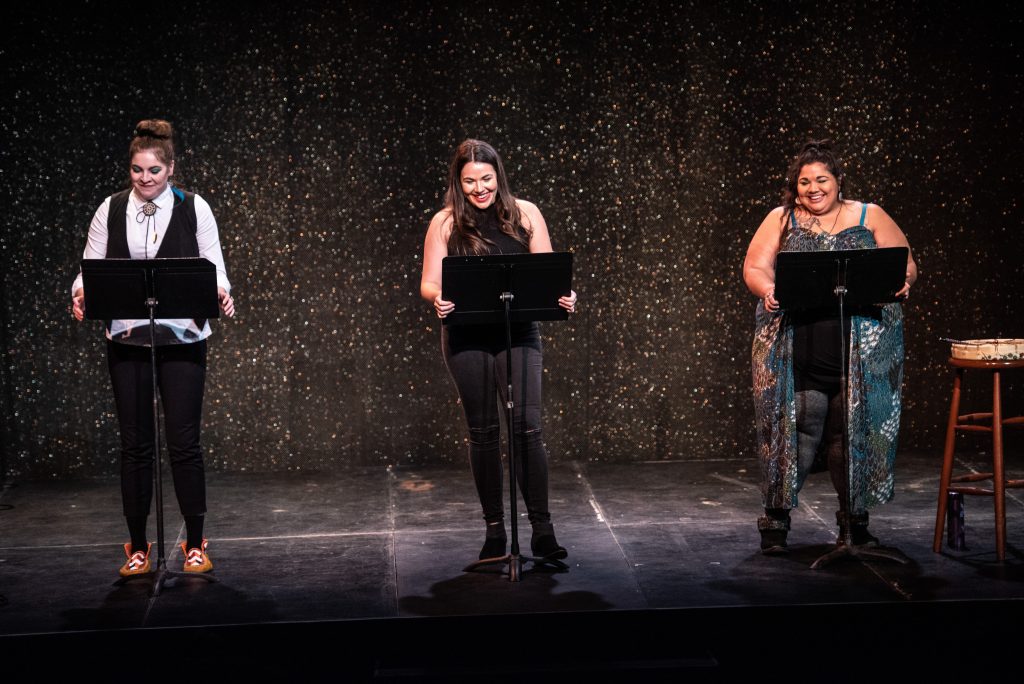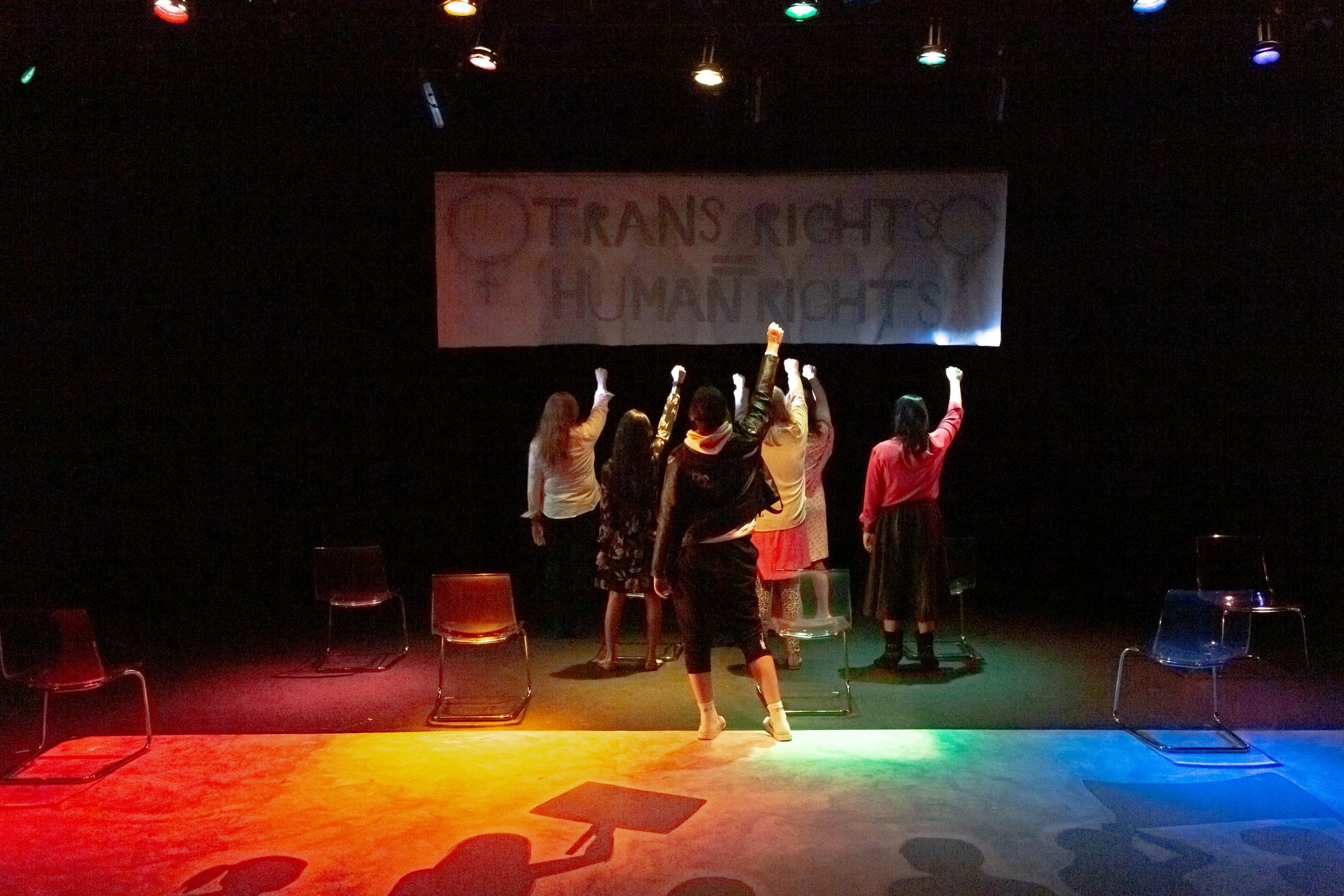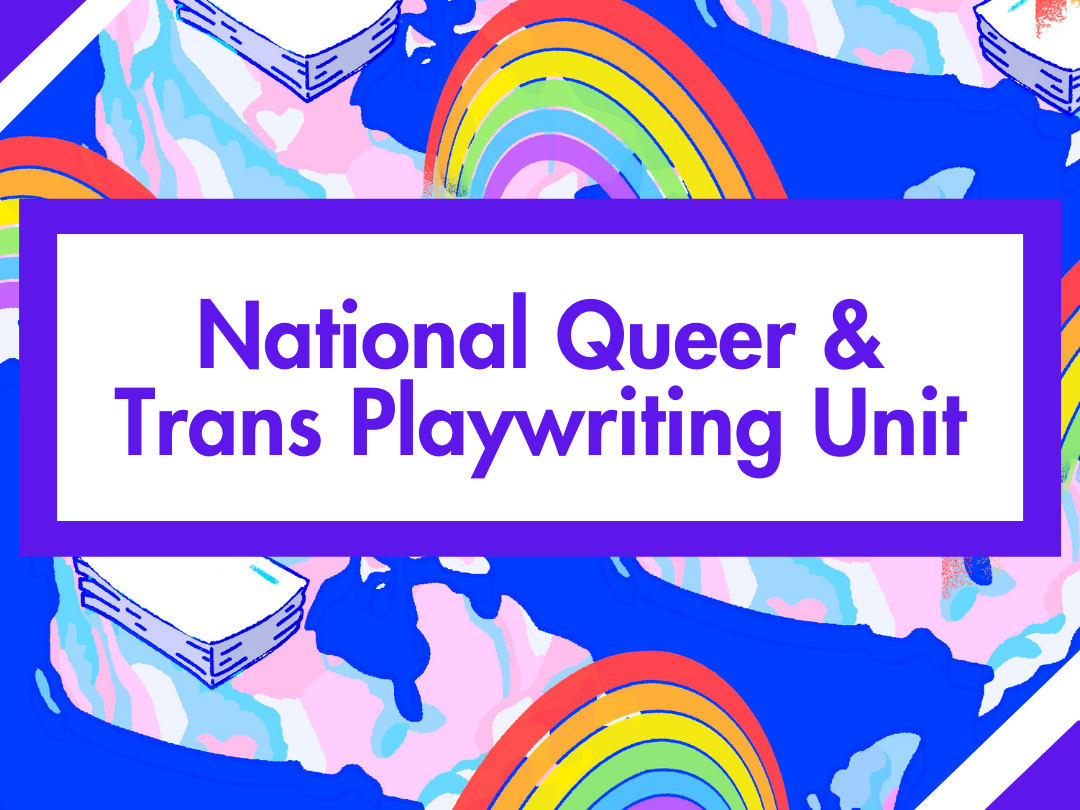Currently, one million Canadians identify as members of the 2SLGBTQ+ community. Despite the size of this population, there’s still a serious lack of queer and trans representation in countless spaces, including the performing arts. To improve this visibility, some creators, like those involved in the new National Queer & Trans Playwriting Unit managed by Zee Zee Theatre, are trying to increase country-wide collaboration to share ideas, resources, and advice on making more room for queer- and trans-focused work.

The Representation Gap
Positive representation acknowledges something called intersectionality. Intersectionality looks at how the different parts of one person’s identity combine to influence how they navigate the world and are treated by others. For example, someone’s identity isn’t defined by only their race, age, or sexual orientation, but all three.
“By offering a community the opportunity to see themselves on stage through various layers of identity, you’re offering a space in which the community can grow, where people can see themselves, and where they can connect,” said Daniel Carter, Interim Director of Operations & Programming at Buddies in Bad Times Theatre.
If you do a little digging, it becomes clear that this representation gap is not because of a lack of content, but a lack of exposure. As the largest and longest-running queer theatre in the world, Buddies in Bad Times is no stranger to this problem.
“So many people are creating work,” explained Daniel, “but to move that work from the development phase into being programmed into a season and being in front of a large audience is the tricky part.”
A Collaborative Solution: The National Queer & Trans Playwright Unit
In response to this exposure shortage, Zee Zee Theatre sought out other queer and non-queer intersectional production companies with a shared interest in promoting diverse representation in the performing arts space. They realized a number of resources for theatre production were available across the country, but their distribution needed to be approached from a new angle.
Daniel explained Zee Zee’s solution was to form a “national network” where they and nine other theatres would collaborate to offer aspiring artists a guided opportunity to share their stories.
Until July 5th, 2022, upcoming queer and trans theatre makers are encouraged to apply for a 10-month play development process offered by the National Queer & Trans Playwriting Unit. Those selected will receive a living wage and be matched in a one-on-one mentorship to create an original production. In September 2022, the five artists who have been chosen for this opportunity will be announced. Live performances and online streaming of the final pieces will take place in September 2023.
“I think it’s going to be an exciting experiment of how we share resources, create opportunities, and develop the progression of work on a national scale,” commented Daniel.
As part of their commitment to the network, the consortium members have pledged to assist artists throughout the development of their work to make sure their story makes it from page to stage.
Meaningful Mentorships
By connecting emerging playwrights with highly experienced artists, the Playwriting Unit aims to produce unique, polished pieces that demonstrate each mentee’s artistic vision guided by their mentor’s industry expertise.
The most successful mentorships involve some level of give –and– take. Although a mentee may feel intimidated by their mentor’s experience, Daniel would encourage them to still share some of their own wisdom and perspectives.
“I think what’s really exciting about this program is there’s a bit of transaction,” said Daniel. “There’s the supporting of the artists and also the artists bringing in their own knowledge and experiences into these various communities.”
Mentorships can also be a great form of networking, allowing people of similar interests to nurture new relationships, both professionally and socially. In the Playwriting Unit, for example, queer and trans artists will be able to connect with people across the country whom they would have never met otherwise.
Growing Your Portfolio
If you’re interested in a queer theatre mentorship program, take some time to reflect on your artistic portfolio. When you review the application information, you’ll notice terms like “emerging” and “mid-career.” Daniel confirmed these are meant to help artists identify where they’re at in their career. This includes assessing how long you’ve been active in the performing arts space and what kind of work you’ve done.
In terms of qualifications needed for this Playwriting Unit, Daniel clarified it’s not about age but experience. “It’s about whether someone feels as though they could complete the program and finish a theatre piece by the end of the unit’s timeline,” he said.
For those on the fence about applying, try to put your doubts aside and take the chance. As per Daniel’s advice, “You’re going to have ten programmers, artistic directors, producers all reading your work. And I think that’s exciting. So, just do it!”
You can find more information about the National Queer & Trans Playwriting Unit on Zee Zee Theatre’s website.
Keep Calm & Collaborate On
If you’re not ready to apply for this program just yet, you can still seek out other events and experiences to keep your artistic career moving forward. Try to get involved in new theatre spaces, both virtually and in person. Checking out each of the consortium partners is a great place to start!
ArtReach also has a list of resources for supporting the mental health and well-being of 2SLGBTQ+ individuals. This list includes links to several organizations that offer safe spaces for 2SLGBTQ+ artists to connect and collaborate with one another.
With meaningful collaboration, more queer- and trans-focused work can make it to the stage. By creating these connections between artists across the country, the potential for further representation, recognition, and respect for the entire 2SLGBTQ+ community will continue to grow.




